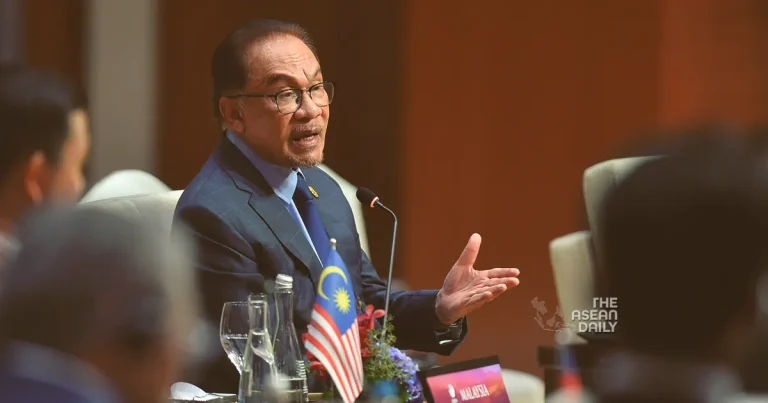13-9-2023 (KUALA LUMPUR) Prime Minister Anwar Ibrahim of Malaysia has pledged to reform the country’s economy and governance, acknowledging that these changes will require time. Mr. Anwar attributed the systemic corruption and public cynicism towards political leaders to previous administrations enriching themselves and leading extravagant lifestyles.
Mr. Anwar stated that Malaysia cannot continue to rely on outdated policies such as distributing handouts and subsidies, as they are no longer sustainable for the current economy. He emphasized the need for economic reforms, particularly in the renewable energy sector.
Regarding governance, Mr. Anwar expressed his determination to establish a mature and responsible democracy with a clear separation of powers between the executive and judiciary. However, he acknowledged that the recent dropping of graft charges against his Deputy Prime Minister, Ahmad Zahid Hamidi, has raised doubts about his anti-corruption agenda.
Mr. Anwar believes that by focusing on the economy and governance, he can regain public support in the face of divisive politics based on race and religion. He acknowledged that rebuilding trust will take time, as previous prime ministers and ministers have been accused of amassing wealth and leading lavish lifestyles.
During his hour-long address at the Milken Institute’s Asia Summit, Mr. Anwar also discussed Malaysia’s foreign policy amid tensions between China and the United States, as well as his efforts to seek justice in the 1Malaysia Development Berhad (1MDB) case.
The dropping of corruption charges against Ahmad Zahid on September 4 has drawn criticism from legal bodies, civil societies, and across the political spectrum. Mr. Anwar clarified that the Attorney General had the sole discretion to make this decision and that he had urged the Attorney General to provide a detailed explanation to the court.
While the decision raised concerns about Mr. Anwar’s ability to combat corruption, he emphasized that he would not influence the Attorney General’s decision. He emphasized his commitment to ensuring a mature and responsible democracy with a clear separation of powers.
Mr. Anwar revealed that his government has begun working on a draft Bill to separate the roles of the Attorney General’s Chambers and the Public Prosecutor’s Office, a commitment that previous governments failed to fulfill.
Regarding economic reforms, Mr. Anwar announced plans to implement targeted subsidies and expand the country’s tax base, moving away from broad-based subsidies. He highlighted the importance of curbing leakages and waste to save billions of ringgit in subsidies.
Mr. Anwar called for clear industry transformation plans and a well-defined energy transition strategy to benefit the economy and attract investors. He dismissed concerns about political instability derailing the government’s plans, stating that he currently has the support of 147 out of 222 Members of Parliament, constituting a strong majority.
The option of signing a Confidence and Supply Agreement with the opposition for the sake of political stability is also on the table. Mr. Anwar emphasized the need for democratic accountability and urged both the government and the opposition to engage in mature processes.
Prime Minister Anwar Ibrahim is determined to reform Malaysia’s economy and governance, acknowledging the challenges posed by systemic corruption and public cynicism. He aims to rebuild public trust by focusing on economic reforms, improving governance, and separating the roles of the Attorney General’s Chambers and the Public Prosecutor’s Office.




